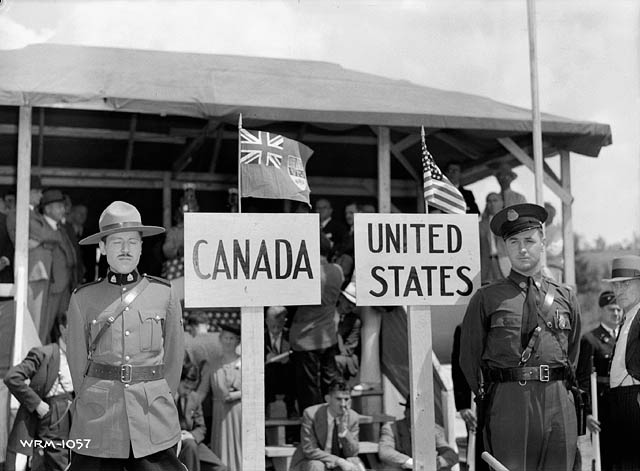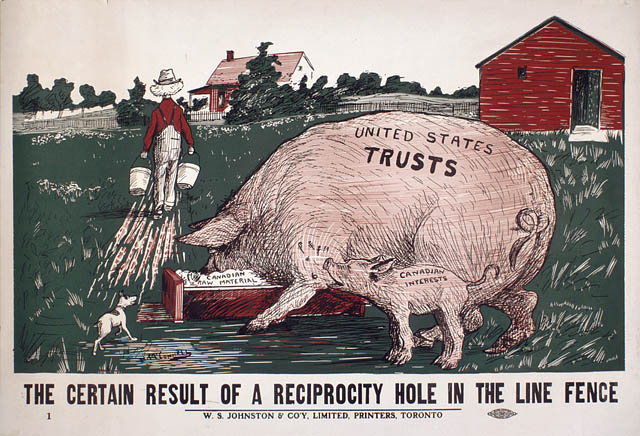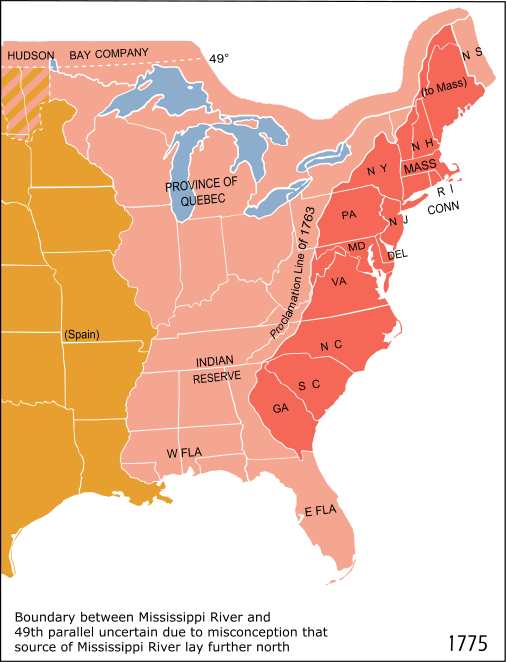There are many reasons countries go to war with each other, whether it is trying to extend their land or over issues of trade, economics, and more. However, has anyone ever heard of an animal causing war? How about a pig, especially? It’s not a joke – a pig almost caused a war between the United States and the United Kingdom.
In a new book, author Kevin Lippert discusses some rather unbelievable tales of disputes that happened between countries. All of them are true, too. Here is a list of a few of the tales the author talks about:
-
Canada and the United States

For the longest time America and Canada had wanted to invade each other, drawing up countless plans aimed at succeeding in this. Although they drew up many plans, these were described as “theoretical exercises” versus serious military strategies.
The plans have been around for decades. Many believe that Canada and the United States were always on each other’s sides, however, it didn’t start off that way, even though it is true now.
Lippert had discussed that in the late 19th century right after the Civil War, the U.S. had a large army equipped and ready for anything. There were 500,000 men who were trained for battle; ready to fight against a proto-Royal Canadian Mounted Police, who only had about 300 men and 100 livestock. Although the numbers don’t make the threat seem too impressive, there was increasing tension because of animosity between two transcontinental railroads – the Canadian Pacific and the Northern Pacific.
Secretary of State William Seward had just purchased Alaska and was hoping that Canada would become part of the United States as well. A group of Irish Americans had created a small series of raids in order to capture Canada so as to be able to trade with Britain for Ireland’s independence. One conspiracy theory that came out of these events was the belief that a group of Quebecois had been involved in Lincoln’s assassination.
This all led to a bill that was introduced by Congress in 1866 to annex Canada. The bill was never voted on and died quietly. During the voting, there were several small skirmishes, but they did not involve weapons. The Lumberjack War, Trent Affair, and American Manifest Destiny actually brought America closer to annexing Canada than anything in the second half of the 19th century.
Canada did threaten to declare war on the United States, but it proved to be just talk and they were never close to starting a war or invading the United States.
-
War on Britain and United States all because of a pig

Lippert called this incident the “most perfect war in history.” That is because it was a famous story about people overreacting.
In 1859, The Americans and British both felt they were owners of the San Juan Island just off the coast of Washington State. This land was one of the many places where boundaries were inconcise. One day, an American farmer noticed an English pig rooting in his potato patch, and he shot the pig.
Because of this, an argument ensued concerning liability and compensation, which eventually resulted in a military standoff. The British actually sent five warships and 2,000 men. The Americans were led by George Pickett and brought in one warship and 500 men. This war is considered an earlier version of the Falklands conflict in the 1980s.
Obviously, the British had the military advantage, and British Rear Admiral Robert L. Baynes was given an order to engage the Americans. However, he believed a major war over a pig was foolish and he refused to start it. He calmly declined the invitation to make a war out of it and in the end the Pig War was concluded with only one shot fired and one casualty – the pig.
-
The Americans thought they owned Canada and believed it until after the Revolutionary War

Eastern North America in 1775. The British Province of Quebec, the Thirteen Colonies on the Atlantic coast and the Indian Reserve as defined by the Royal Proclamation of 1763.
The idea that America owned Canada came from several factors. Many American commanders believed that they could waltz into Canada whenever they pleased. They believed that they were welcomed as liberators by the Canadians and hoped they could throw off British rule there. This feeling of authority on the Americans’ part led to many issues.
Even if Canada had wanted to fight back, they did not have the resources to do so. Canada was an agricultural country and was quite poor. They couldn’t afford a standing army until 1899.
Many Americans believed that Canada had owed them and that Canada managed to slip through American fingers when the Paris Peace Treaty was signed after the Revolutionary War ended.
-
Canada wanted to provoke a war the United States feared was to come. Once in a while, there are still minor issues between the countries
The main difference between the two countries was intention. The Canadians had hoped to hold quick raids and rapid retreats while they blew up roads and bridges. They hoped these tactics would stall the Americans while the Canadians waited for the British help.
The Americans saw this as an opportunity for attrition which would result in Britain bringing together more than 2 million men. Americans feared a war; Canada would have a massive buildup of men to the north, and ships on the shores.
Nobody is sure how Canada and America came to a peace agreement. Lippert said that one day the two countries must’ve realized how alike they really were and that they had close, common interests. After World War II, the bonds between the two countries were strengthened. Their economies eventually intertwined and people moved freely back and forth.
Two areas are still under dispute – the Machias Seal Island off the coast of Maine and the Northwest Passage.
-
One Canadian thought invading forces would be greeted in the United States
Lippert was asked where he got his inspiration for writing the book. He said that he got some of his ideas from other authors. One topic was the thought that if America got into trouble, Canada would be the place to flee to in a desperate situation. It’s not completely out of the question since Canada is a happy, healthy country and does well in many areas.